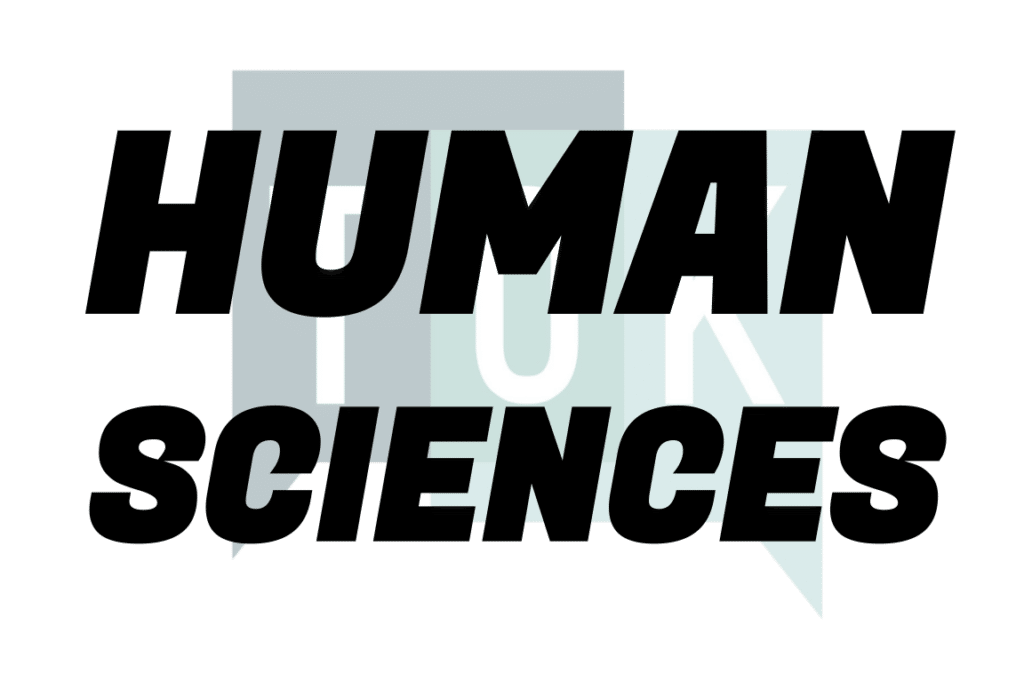
Welcome to the human sciences section of the site. This page will help you to take ownership of the human sciences via a quick overview, and four padlets that offer you quotes, knowledge questions, real-world issues, and key thinkers relating to this area of knowledge.
You can use this content both to understand this component of TOK, and support discussions and arguments that you offer in your essay and exhibition.
Human sciences: a quick overview
The human sciences are collectively dedicated to exploring the intricate workings of human behaviour, society, and cognition. The fields belonging to this area of knowledge – including psychology, economics, anthropology, sociology, and many others – seek to understand and explain the multifaceted aspects of our existence through rigorous inquiry and analysis. To delve into this realm, we encounter several key concepts.
Evidence forms the foundation of the human sciences, demanding the collection and assessment of data and empirical observations to construct reliable theories about human behaviour. Explanation involves unraveling the underlying causes and mechanisms that drive human actions and interactions. The concept of perspective reminds us that various viewpoints influence our understanding of human phenomena, emphasizing the importance of diverse cultural, societal, and individual lenses.
Two influential thinkers in the realm of the human sciences from diverse backgrounds are Sigmund Freud and Margaret Mead. Sigmund Freud, an Austrian neurologist and psychoanalyst, revolutionized the study of human
psychology by delving into the subconscious mind and pioneering the field of psychoanalysis. Margaret Mead, an American cultural anthropologist, conducted groundbreaking research on cultural variations and gender roles in different societies, challenging conventional notions of human behavior and culture.
Contemporary issues within the human sciences often center around power dynamics and ethical responsibility. The ongoing debates on artificial intelligence and ethics highlight the impact of advancing technology on human behaviour and decision-making. The exploration of cultural relativism raises questions about the moral and cultural responsibilities in understanding and respecting diverse cultural practices and norms.
Exploring the human sciences requires students to critically analyze human behaviour, appreciate the complexity of our societies, and explore the ethical considerations inherent in studying human phenomena. It underscores the importance of empirical evidence, diverse perspectives, and responsible research in uncovering the truths about our intricate human existence.
1 QUOTES Who said “If it’s far away, it’s news; if it’s close to home, it’s sociology”?
Explore these quotes on the human sciences by a wide range of different thinkers. Which quotes are the most and least insightful? How they challenge our assumptions about human sciences? What do they reveal about links between human sciences and other aspects of the TOK course?
2 KNOWLEDGE QUESTIONS How should competing claims be evaluated?
Identifying and exploring knowledge questions (KQs) is at the heart of TOK, prompting us to reflect on our knowledge, evaluate whether it’s be based on a flawed or incomplete assumptions, and provide us with a focus point to improve our understanding of the world.
3 REAL-WORLD ISSUES Is misinformation ethically and factually, unacceptable?
These examples will help you to understand how TOK ideas manifest in the real-world, take ownership of human sciences, link TOK to the latest global issues, and become an authentic critical thinker. They will also help you to justify and explore the discussions you offer in your essay and exhibition.
4 KEY THINKERS What insights does Crockett provide on the media & science?
The thinkers in this padlet will help you to consolidate your understanding of human sciences, and challenge your assumptions about the world. You can also draw on their ideas to support your essay and exhibition discussions, and add depth and authority to the claims you make about knowledge.
HUMAN SCIENCES: DEEPER DIVES Follow these links to access a range of notes, essays, and observations. Use the deeper dives docs to research this AOK, and hone your essay arguments.

Subscribe to the free TOK newsletter!
Subscribe to our free newsletter, and collect fantastic examples to help you understand the key TOK ideas, support your essay and exhibition, and make you an authentic critical thinker.
You’ll encounter some of the most important thinkers from the past and the present, go beyond the headlines of contemporary events and issues around the globe, and see how TOK concepts manifest in the real-world. Subscribe HERE!